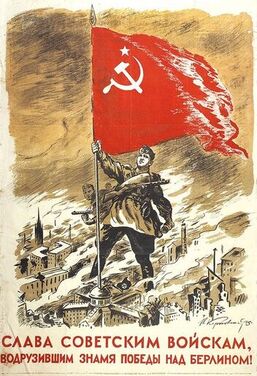 Eighty years ago, the biggest Jewish revolt against Nazi aggression was under way. The Warsaw ghetto uprising, which lasted from 19 April-16 May 1943, was an attempt to prevent the deportation of the remaining population of the ghetto to the gas chambers. The previous summer, more than a quarter of a million Jews had been transported from the Warsaw ghetto to Treblinka. Foreseeing their own fate, the remaining residents developed resistance movements, smuggled weapons into the ghetto and prepared to fight. They knew that victory was impossible; they fought instead for the honour of the Jewish people, and to prevent the Germans from choosing the time and place of their deaths. On 19 April 1943, the eve of Passover, Germans entering the ghetto to begin the deportation were met by gunfire, grenades and Molotov cocktails. Pitched battles raged for days, until the Germans resorted to burning down the ghetto, block by block. Thousands of Jews took refuge in sewers and bunkers, which the Nazis then destroyed. The uprising came to an end on 16 May 1943. Around 13,000 Jews had died, and a further 55,000 were captured and taken to the death camps at Treblinka and Majdanek. The presidents of Germany, Poland and Israel gathered on 19 April at a memorial on the site of the former ghetto to mark the 80th anniversary of the uprising. “I stand before you today and ask for forgiveness,” German president Frank-Walter Steinmeier said. “The appalling crimes that Germans committed here fill me with deep shame… You in Poland, you in Israel, you know from your history that freedom and independence must be fought for and defended, but we Germans have also learned the lessons of our history. ‘Never again’ means that there must be no criminal war of aggression like Russia’s against Ukraine in Europe.” A 96-year-old Polish Holocaust survivor, Marian Turski, warned against apathy in the face of rising hatred and violence. “Can I be indifferent, can I remain silent, when today the Russian army is attacking our neighbour and seizing its land?” he questioned. The anniversary of the Warsaw ghetto uprising comes as Russia is preparing to commemorate its own wartime anniversary – that of the Soviet Union’s victory over Nazi Germany in 1945. The Kremlin continues to draw parallels between the Second World War and Russia’s invasion of Ukraine, claiming that Russia is fighting Nazis and battling for its survival against an aggressive force from the West that his hellbent on its annihilation. Russia’s motivation for its war in Ukraine is to ensure that “there is no place in the world for butchers, murderers and Nazis,” Putin said last year. “Victory will be ours, like in 1945.” But Victory Day, celebrated in lavish style on 9 May every year in Russia, will entail less pomp and ceremony than usual. Several cities are scaling back their celebrations for security reasons, fearing attacks by pro-Ukrainian forces following a spate of explosions and fires in recent days involving Russian energy, logistics and military facilities. The reduced scale of events also signals a degree of nervousness that the parades could become an outlet for disaffection with the war in Ukraine. Most notably, Immortal Regiment processions, which take place in all major towns and cities across Russia, have been cancelled this year. During the parades, hundreds of thousands of people march carrying photographs of relatives who fought or died during World War II. Putin himself attended an Immortal Regiment march in Moscow last year, holding a portrait of his father. The procession is a key event in the glorification of Russian sacrifice in the defeat of Nazi Germany – a cornerstone of Russia’s nationalist resurgence during Putin’s two decades in power. Ostensibly called off because of fears of a terrorist attack, Immortal Regiment processions risk highlighting the human cost of Russia’s war in Ukraine. The Kremlin fears that thousands of Russians would march with photographs of family members killed in the current war, bringing into sharp focus Russia’s mounting losses, and potentially risking the morphing of processions into protest events. The Russian authorities remain tight-lipped about the scale of the country’s losses in Ukraine. The most recent update came back in September, when the military reported that nearly 6,000 Russian soldiers had lost their lives. The US estimates Russian casualties in Ukraine to amount to over 200,000 dead or wounded. During last year’s Victory Day celebrations, 125 people were detained for protesting about the war, many of them at Immortal Regiment parades.
0 Comments
|
Keeping stories aliveThis blog aims to discuss historical events relating to the Jewish communities of Ukraine, and of Eastern Europe more widely. As a storyteller, I hope to keep alive stories of the past and remember those who told or experienced them. Like so many others, I am deeply troubled by the war in Ukraine and for the foreseeable future, most articles published here will focus on the war, with an emphasis on parallels with other tumultuous periods in Ukraine's tragic history. Archives
March 2024
Categories
All
|
 RSS Feed
RSS Feed
